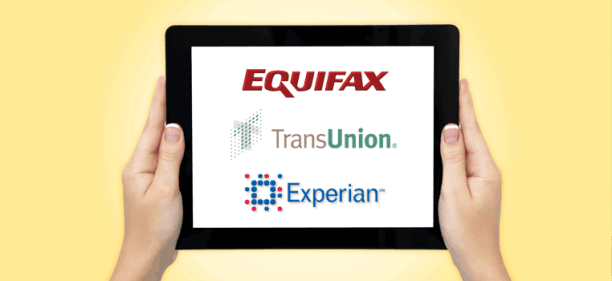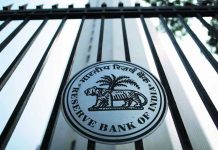This article is written by Edrich Miranda.
In or about 1987 credit agencies came to the fore, with banking institutions incurring an avalanche of NPA’s resulting in a good with a corresponding evil. Borrowers were defaulting, left, right and center and it had become incumbent to introduce some mechanism, to take stock of potential dangers lurking in a borrower’s profile. All said and done, it was a good step to obtain otherwise vital confidential information of the to be borrower; but over a period of time bankers, credit agencies and over smart legal advisors, began to misuse the facility, to camouflage their shortcomings regarding deficiency of legal knowledge and experience, by using the credit report facility to indulge in arm twisting innocent and honest borrows into submitting to their patently illegal and irrational demands.
The agencies usually have a website, where they put up the purported defaulters name, address and other data, to which the general public have access thereby having adverse effect on the image of the borrower.
No doubt, if a borrower has genuinely defaulted, it’s fair play; but how does one conclude, who is at fault, the lender or the borrower?
Agencies obtain info only from the lending bank or institution, a one sided story. At the most, the agency may have perused the accounts, default of EMI’s, the demand notice issued by the bank, a case, suit or other proceeding pending before a court, tribunal or forum. How then do they conclude that the facts furnished are true and correct? It amounts to breach of the principles of natural justice; because, the purported defaulter or the opposite party’s version isn’t available.
Take a case of lending bank “A”, having duly served upon borrower “B”, a demand notice of “X” amount. If “B” in his reply, has wholly or partially refuted the alleged default, and “A” inspite of having received the said reply, has not proceeded in the matter for years, or proceeded with an amended claim, of a lesser or more amount, does it amount to default per se? “A” ought to have initiated appropriate legal proceedings against “B” for recovery of the purported outstanding payment; else it’s a mere allegation, until such time as conclusively proven.
In the same scenario if “A” had initiated proceedings and the matter is sub-judice, yet again the question arises how does the agency say on its website with authenticity that the borrower is a defaulter, when no ad-interim, interim or final order has been passed by a competent court or authority?
Take a third possibility in the same scenario, if “B” has initiated proceedings against “A”, which obviously won’t be known to the credit agency, then the info put up on the website about the alleged defaulter (Borrower)is factually incorrect making the agency, the concerned bank or financial institution and the reserve bank of India liable for being criminally prosecuted and civilly sued for defamation, as the RBI vide section 45 A to 45 F, of the RBI Act 1934, shares information with the banking companies and agencies websites can be accessed to elicit such information WEF March 2003.
Apart from the aforesaid, does it occur to stakeholders as to why the dispute originated in the first place? So natural, deficiency of knowledge and experience of in-house and external legal advisors; which nobody wants to admit; but cannot be wished away through stoic silence. It would be prudent and economical to engage outsiders, not necessarily advocates or law graduates (As learned lackluster). Trade, industry and commerce ride on consideration of efficiency and economy, therefore second opinion pays off, unlike a record stuck in a grove playing the same tune over and over again, they cannot think in a trajectory, but have stereotype, regimentation of thoughts as their minds have been trained to think in a particular fashion; from my thirty odd years of experience, I have observed banks, insurance companies and some other institutions, private or public sector, quite often their representatives draft and/or argue against the interest of the party having engaged them, creating an embarrassing situation, but all learned gentlemen and ladies, put on a solemn facial expression in the courts, tribunals etc.
Inviting liabilities, losses could be curtailed by recruiting, not run of the mill advisors, which to an extent can take stock of internal or even external advisor’s errors, saving the day when the lenders have to compensate the borrower, let alone save their own skin of minimizing recovery.
It is therefore in the fitness of things, that bankers and other institutions directly or vicariously associated with any individuals credit rating, shouldn’t place much reliance on credit agencies, which opens up a large field for further litigation; as credit agencies do not inherit blanket immunity against libel, defamation, if one is in business one is expected to meticulously adhere to laws of the land. Another disturbing factor is some credit rating agencies do not cater to info about individuals; but only companies, firms, institutions, even worse, they have a percentage of shareholdings in other companies, as such one couldn’t expect objective assessment due to conflict of interest; they are under the supervisory eyes of SEBI, which to the best of my knowledge has never initiated any disciplinary proceedings against the agencies for breaches.
References
- https://rbidocs.rbi.org.in/rdocs/Publications/PDFs/BANKI15122014.PDF
- https://timesofindia.indiatimes.com/city/mumbai/Banks-cant-shame-defaulters-with-pictures-Legal-experts/articleshow/24770412.cms, https://timesofindia.indiatimes.com/city/mumbai/Borivli-hsg-society-calls-member-liar-on-notice-board-committee-in-dock/articleshow/45597854.cms
LawSikho has created a telegram group for exchanging legal knowledge, referrals and various opportunities. You can click on this link and join:
 Serato DJ Crack 2025Serato DJ PRO Crack
Serato DJ Crack 2025Serato DJ PRO Crack









 Allow notifications
Allow notifications


